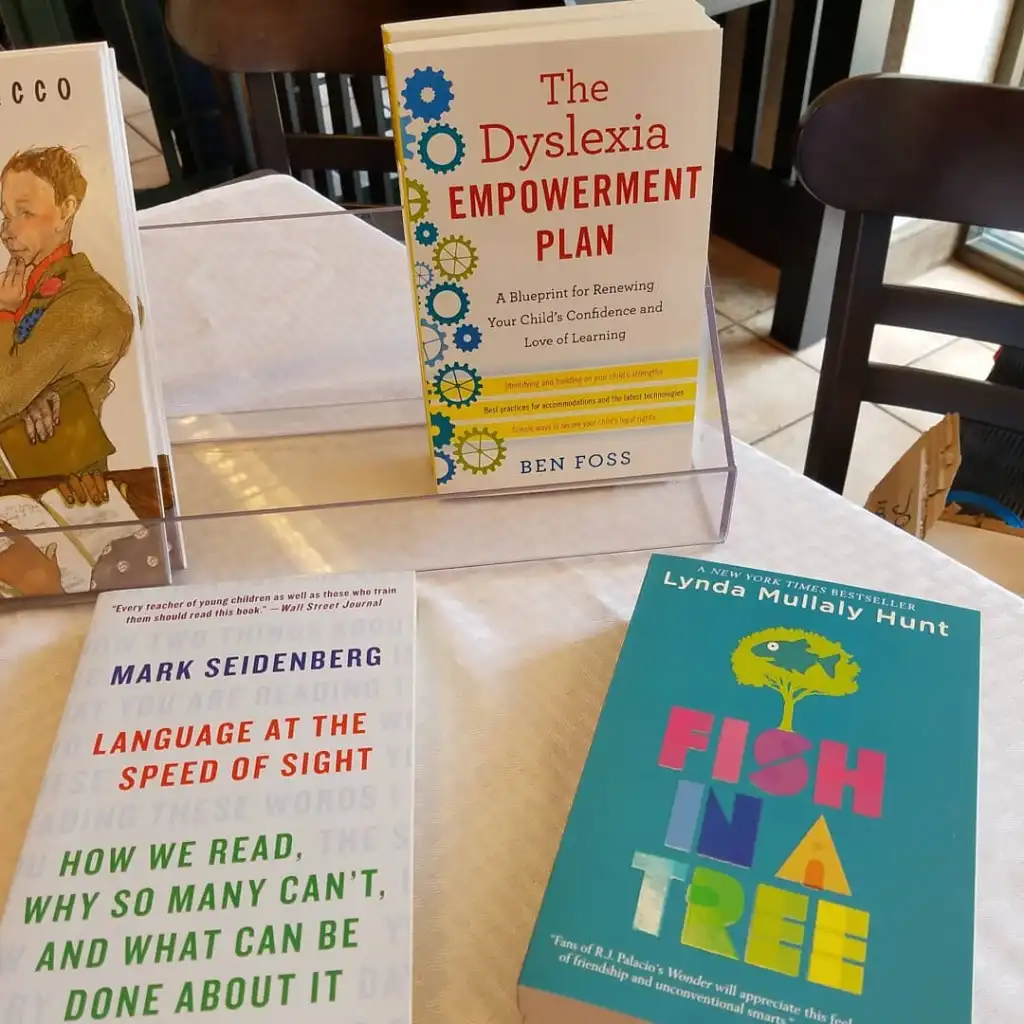Did you know you can be intellectually gifted AND dyslexic? A person who is gifted and dyslexic is called Twice Exceptional or 2E. It’s not uncommon. Actually, most dyslexics have average to above average IQs. In Tennessee it is possible to have an IEP for BOTH Specific Learning Disability (the umbrella under which Dyslexia falls) and Giftedness.
Here are several general resources to review if you have a child who is or may be gifted with dyslexia:
- Gifted and Dyslexic: Identifying the Twice Exceptional Student by the International Dyslexia Association is a good resource.
- Gifted with Dyslexia – The Twice Exceptional Student at School by Dyslexic Advantage is also good
- Office of Special Education Programs “Letter to Delslie” dated April 17, 2015 about students with disabilities with high cognition.
If you are interested in seeking a Gifted IEP in Tennessee, it is important to be very well informed. Just as in other disability categories, you must prove that your child is both 1) GIFTED and 2) the Giftedness makes it difficult for her to access her education. An important place to start is the Tennessee Gifted information:
- Tennessee Department of Education Intellectually Gifted Webpage.
- Tennessee Department of Education Tennessee State Plan for the Education of Intellectually Gifted Students (aka TN Gifted Manual.)
 STEP 1: In the TN Gifted Manual, start with looking at the Gifted Characteristics in Section 1.3 (page 7). It is important to highlight for the IEP team that your child has attributes on both the Gifted Characteristics side AND the Concomitant Problems side. Again, you need to prove that your child is both gifted and has problems related to giftedness that make it difficult for her to access her education.
STEP 1: In the TN Gifted Manual, start with looking at the Gifted Characteristics in Section 1.3 (page 7). It is important to highlight for the IEP team that your child has attributes on both the Gifted Characteristics side AND the Concomitant Problems side. Again, you need to prove that your child is both gifted and has problems related to giftedness that make it difficult for her to access her education.
STEP 2: Next, it is critical that you understand what the eligibility requirements are in Tennessee for a gifted IEP. We suggest that you review the questions on page 48 of the TN Gifted Manual and have answers prepared to share with the IEP team. The questions are here:
“DETERMINATION OF NEED FOR SERVICES – GRADES K12
The following questions are offered as framework for assisting the IEP Team in determining whether special education services are required. This is not intended to be an exhaustive list, and the IEP team is encouraged to consider all relevant information.
- What grade level curriculum has the student mastered?
- To what extent has this student accessed supplemental materials and activities?
- To what extent does this student have access to intellectual peers through the general education program?
- What specific goals or abilities does this student have that go beyond the scope of the general education program?
- What school resources, such as science lab, chess club, honors, and/or advanced placement classes are available in this student’s school to assist in meeting his/her individual needs? To what extent is the student accessing these resources?
- What educational opportunities are accessed by this student outside of school?
- To what extent is there evidence of a discrepancy between potential and actual performance in the general education program (i.e. underachieving gifted students)?
- How unique is this student compared to other students in his/her classroom?
- How do the maturity and social/emotional levels of this student compare to other general education classmates?
- What general education interventions have been implemented for the student and what has been the student’s response to those interventions?
- Have interventions addressed the social/emotional needs of the student?”
 STEP 3: If you are trying to get an IEP for Gifted AND Specific Learning Disability (Dyslexia), it is very important that you tell the IEP team that you request an alternative assessment. Instead of doing the portion of the testing that relies heavily on reading and writing, students may do a project of their choosing and present it to the IEP team. The Assessment Scoring Grid can be found on page 86 and 87 of the TN Gifted Manual. Students have to score at least 50 points to be considered eligible for an IEP.
STEP 3: If you are trying to get an IEP for Gifted AND Specific Learning Disability (Dyslexia), it is very important that you tell the IEP team that you request an alternative assessment. Instead of doing the portion of the testing that relies heavily on reading and writing, students may do a project of their choosing and present it to the IEP team. The Assessment Scoring Grid can be found on page 86 and 87 of the TN Gifted Manual. Students have to score at least 50 points to be considered eligible for an IEP.
We know this is complicated. Decoding Dyslexia -TN leader Anna Thorsen has gone through the 2E IEP process before and would be happy to answer questions. Feel free to reach out to her at athorsen16@yahoo.com.

Leave a comment